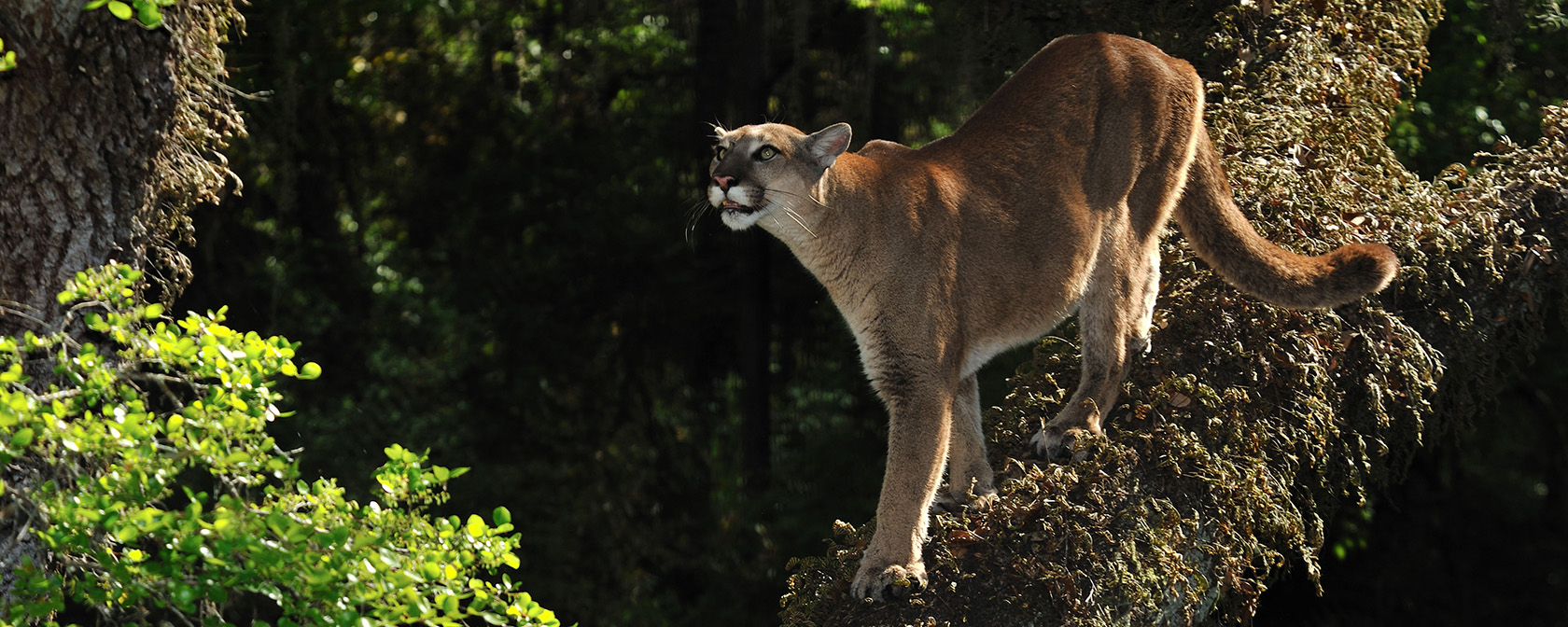By Sara Amundson and Kitty Block
The U.S. House has just approved provisions that would make highways safer for wildlife to cross and create safer conditions to transport horses across the country, as part of the Moving Forward Act, a package of reforms designed to restore America’s aging infrastructure.
The measures approved today would create safe passageways for native wildlife species to migrate in order to find food, water and shelter, to adapt to changing environmental conditions, and to reach breeding or wintering areas. This is a crucial investment toward our nation’s ecological health because scientists estimate that two in 10 animal and plant species in the United States are at risk of extinction, largely as a result of habitat loss due to growing human populations and residential, commercial and energy activities in and around important wildlife migration corridors.
A national wildlife corridors systems such as the one proposed in the package would connect fragmented habitats with bridges or tunnels on federal lands—including national parks, national wildlife refuges, national forests and other conservation areas—and participating state, tribal and private lands, and would protect natural pathways to allow wildlife to move between isolated patches of habitat. The animals would no longer have to cross highways, where they are highly likely to get hit by vehicles, or pass through other human developments.
Such corridors would also create more resilient landscapes and are known to increase wildlife movement between habitat areas by approximately 50 percent compared to areas not connected by corridors. They also make our nation’s roads safer for people, by reducing the risk of vehicle-wildlife collision. The reforms passed today will help mitigate the 725,000 to 1.5 million large-animal-wildlife-vehicle collisions that occur in the United States each year—collisions that result in more than 200 human fatalities, over a billion dollars in property damage, and significant declines in the populations of threatened and endangered animals like the Florida panther, bighorn sheep and Key deer.
These measures in the package that passed today were incorporated from two other bills, including the Wildlife Corridors Conservation Act, H.R. 2795, introduced by Reps. Don Beyer, D-Va., and Vern Buchanan, R-Fla., and the INVEST in America Act, H.R. 2. We applaud Reps. Beyer and Buchanan for taking the initiative to make our roadways safer for both people and animals, and we are grateful to the House leadership for including the national wildlife corridors system in the Moving Forward Act.
The package also includes key provisions from the Horse Transportation Safety Act, H.R. 1400, introduced by Reps. Steve Cohen, D-Tenn. and Peter King, R-N.Y. that makes it unlawful to transport horses across state lines in double decker trailers built for transporting shorter farm animals, such as hogs and cattle. We are grateful to Congress for recognizing the great safety risk this practice poses, for both horses and humans. The horses are at risk of serious injury because there is not enough space overhead for them to stand upright, which can cause them to fall during transport. Cramming them into trailers not meant to carry animals this size can greatly increase chances of major accidents on the roads.
Two more key provisions for animals were adopted during the amendment process today. The Bird-Safe Buildings Act, offered through amendment by Rep. Mike Quigley, D-Ill., would advance bird-friendly practices in the construction of federal buildings to help prevent the deaths of a billion birds killed each year in the United States when they fly into buildings. Another bill, to establish the Western Riverside County National Wildlife Refuge providing habitat for 146 plant and animal species in California, was offered as an amendment by Reps. Ken Calvert, R-Calif., and Mark Takano, D-Calif.
Both provisions will not only enable the federal government to reduce negative impacts on animals, but they will also serve as models for other sectors.
The provisions for animals approved today underscore how deeply connected human and animal interests are, and how benefiting one can help the other. The package now moves to the Senate and we’ll be pushing to secure passage of these measures there, with your help. Please contact your Senators to encourage their support for the Moving Forward Act and for making our highways safer for wildlife and horses. It’s a worthy investment in the future of our nation.
Kitty Block is President and CEO of the Humane Society of the United States.




